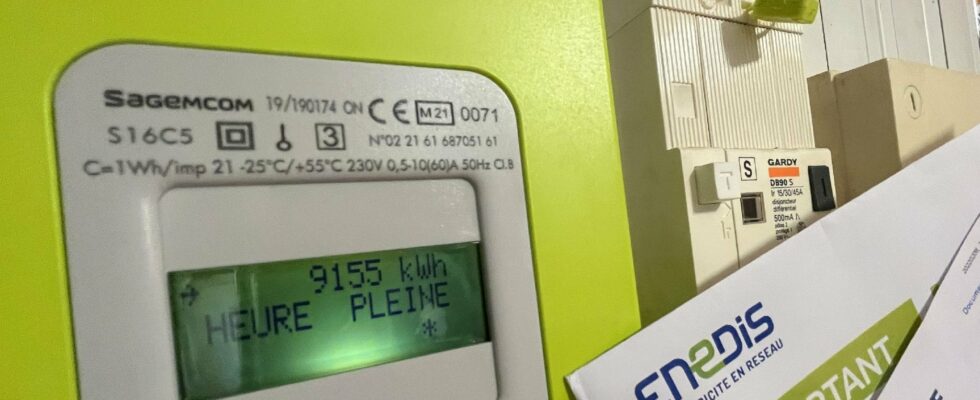A specialist in electrification and renewable energies, Anne Lapierre took over the summer as head of the Paris office of Bracewell, an American business law firm specializing in energy. A new challenge for this expert who served twelve years on the board of directors of France Renouvelables and who continues her consulting activities with Bertrand Piccard’s Solar Impulse Foundation. While France is sinking a little deeper into political vagueness, Anne Lapierre invites our country to review its energy policy, incapable for the moment of protecting businesses from high energy prices or of bringing about a real hydrogen market.
L’Express: Energy concerns businesses and households. What could be the impact of the current political situation on this major subject?
Anne Lapierre: From a regulatory perspective, the current context raises some concerns. Our country is already significantly behind what is done abroad, on electricity supply contracts for example. The recent upheavals can only accentuate the existing gap. Furthermore, households and businesses need clear rules that last over time. What should citizens think today? The budget having fallen, they can continue to buy gas boilers while benefiting from a reduced VAT rate. But many have undoubtedly already understood that electricity prices will increase in the coming years. Certainly, the government has communicated a drop of 9%. But it is purely opportunistic: the drop in the price of electrons on the European market makes it possible to compensate for the increase in taxes.
What will happen next year if market prices rise? Households will suddenly find themselves with a surge in bills that will have to be managed urgently. This example clearly shows the paradox of the moment. Energy is becoming more vital than ever. However, there is such political fragility that decisions are often disconnected from the issues at stake. Five years may seem sufficient for a sitting president, but if the investment decisions to be taken today will have an immediate impact on the state budget, the economic benefits will only be tangible in ten or twenty years. Thus, in addition to an Assembly capable of passing laws and a government capable of governing, this issue requires courage.
Companies are increasingly signing contracts over several years to supply themselves with electricity. Are they becoming more resilient in the face of crises?
The situation is not as rosy as it seems. On PPAs – contracts for the purchase of green electricity from renewable energies – we are observing a wait-and-see attitude which is undoubtedly linked to the political situation. These instruments must become a major element of the future competitiveness of businesses. However, when market prices are lower than those mentioned in the contracts, there is a lack of interest in this type of tool. This is not very logical because energy prices are more likely to rise in the medium and long term. The Court of Auditors has already explained it: France has a major asset with its electricity network which is based on nuclear reactors, but these installations are aging. Like a car with many kilometers on the odometer, they will cost more and more to maintain. Companies should therefore rush into PPAs to hedge against energy risk. The fact that they are slow to do so shows that these subjects remain very complex, and that there is still education to be done.
Are new types of electricity supply contracts needed?
Yes. Businesses – like households – are taking advantage of the tools made available to them. If these transition support systems are not working properly, it may be helpful to change them. At the beginning of next year, we are going to start discussion workshops aimed at developing the PPAs so that they are better adapted to needs. More broadly, there is much that could be done to improve existing aid. Take the green hydrogen market. Projects are being developed in France on the basis of 12 euros per kilo produced. However, the price of gray hydrogen – that produced in the traditional way in industry – barely exceeds 2 euros. And the subsidies supposed to encourage the move towards more eco-friendly practices only cover 0.40 to 0.70 euros. There is no need for a crystal ball to predict the failure of this market. I fear that the same mistakes will be repeated, as with offshore wind power. If we do not make clear decisions, France risks watching the train go by because on these energy issues, we are in a global competition.
So, when it comes to hydrogen, we need a foreign supply strategy?
Absolutely. In the south of Morocco, for example, one million hectares will be used to develop hydrogen projects. Around forty files are already being reviewed. If France is not part of these discussions from the start, we will regret it later. We are already behind other countries which, like Germany, are putting money into studying, finding commercial partners in Morocco, Mauritania, Namibia or the Gulf countries, that is. that is to say in places where the cost of the electric kilowatt hour will be very low due to the presence of huge wind and solar farms. We are fortunate to have very large players, such as TotalEnergies, Engie or EDF, who, as part of their activities, are prospecting the most interesting regions. But the positioning of these companies is not everything. We need political commitment as well as a long-term vision for the country.
.
